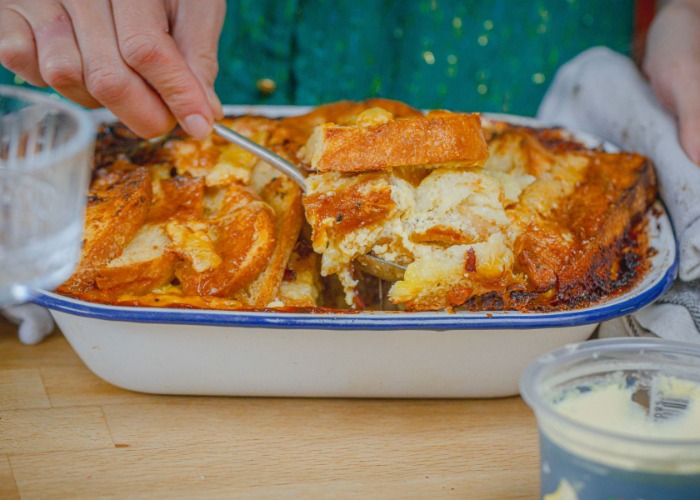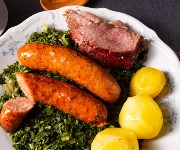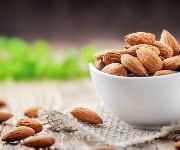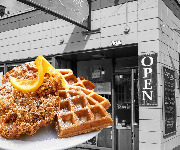Camembert and caramelised onion bread and butter pudding recipe

With its layers of buttered bread, raisins and custard, bread and butter pudding is one of Britain’s best-loved desserts. As this recipe proves, though, the idea works brilliantly when applied to savoury ingredients, too.
This rich, totally cheesy twist on the traditional recipe is a great way to elevate humble ingredients and make tasty use of leftovers. Stale bread is better than fresh here, and you can use any cheese you like, though soft, melty cheeses like Brie and Camembert work particularly well. The caramelised onions, meanwhile, provide fantastic depth of flavour.
You could also add in leftover cooked vegetables – think roasted carrots and parsnips – or even shredded ham or chicken.
The pudding makes a lovely accompaniment to a traditional roast dinner, but more than holds its own when served with a green salad on the side.
Things to note:
The dish will ideally be left to stand for a few minutes before cooking, so the bread has a chance to soak up the liquid.
For US ingredients and measurements, use the drop-down menu and select 'Cups'.
Ingredients
- 50 g salted butter (we like Trewithen Dairy Salted Butter)
- 1 tbsp olive oil
- 3 red onions, thinly sliced
- 2 tbsp red wine vinegar
- 1.8 oz salted butter (we like Trewithen Dairy Salted Butter)
- 1 tbsp olive oil
- 3 red onions, thinly sliced
- 2 tbsp red wine vinegar
- 1.8 oz salted butter (we like Trewithen Dairy Salted Butter)
- 1 tbsp olive oil
- 3 red onions, thinly sliced
- 2 tbsp red wine vinegar
- 1 loaf white bread (stale is fine), sliced
- 100 g salted butter, softened, plus extra for greasing
- 2 garlic cloves, grated
- 1 small bunch parsley, roughly chopped
- 1 whole Camembert (or any cheeses)
- 100 ml whole milk
- 2 eggs
- 50 g clotted cream (we like Trewithen Dairy Cornish Clotted Cream)
- 1 tsp mustard
- 1 pinch salt
- 1 pinch pepper
- 1 loaf white bread (stale is fine), sliced
- 3.5 oz salted butter, softened, plus extra for greasing
- 2 garlic cloves, grated
- 1 small bunch parsley, roughly chopped
- 1 whole Camembert (or any cheeses)
- 3.5 fl oz whole milk
- 2 eggs
- 1.8 oz clotted cream (we like Trewithen Dairy Cornish Clotted Cream)
- 1 tsp mustard
- 1 pinch salt
- 1 pinch pepper
- 1 loaf white bread (stale is fine), sliced
- 3.5 oz salted butter, softened, plus extra for greasing
- 2 garlic cloves, grated
- 1 small bunch parsley, roughly chopped
- 1 whole Camembert (or any cheeses)
- 0.4 cup whole milk
- 2 eggs
- 1.8 oz heavy cream
- 1 tsp mustard
- 1 pinch salt
- 1 pinch pepper
Details
- Cuisine: British
- Recipe Type: Dinner
- Difficulty: Easy
- Preparation Time: 15 mins
- Cooking Time: 60 mins
- Serves: 4
Step-by-step
- First prepare the caramelised onions. Heat the butter and olive oil over a medium heat, add the onions and coat them in the buttery oil. Cook for at least 20 minutes, prodding from time to time, until caramelised.
- Add the red wine vinegar and cook for a couple more minutes, until sticky. Season well and set aside.
- Next start making the pudding. Stir the grated garlic, parsley and pepper into the softened butter until thoroughly combined.
- Spread the garlic butter over the sliced bread, coating on both sides. Cut the bread into triangles – don’t worry about removing the crusts as you might with a sweet bread and butter pudding though.
- Slice the Camembert into thick slices, if using. Otherwise, grate or slice your chosen cheese.
- Grease a baking dish and arrange a layer of bread on the bottom. Spoon over a layer of caramelised onions, followed by a layer of cheese. Repeat the layering process, until the bread, onions and cheese are all used up.
- Whisk the milk, eggs, clotted cream (heavy cream) and mustard together in a bowl, then season with salt and pepper. Pour over the bread.
- Allow to stand for a few minutes, so the bread soaks up the mixture.
- Preheat the oven to 180°C/fan 160°C/350°F/gas mark 4.
- Bake the pudding for 25 minutes, until bubbling and golden on top. Leave to stand for a few minutes before slicing.
Adapted from a recipe supplied by Trewithen Dairy. Image courtesy of Trewithen Dairy.
You might also like:
Most Recent
Comments
Be the first to comment
Do you want to comment on this article? You need to be signed in for this feature








